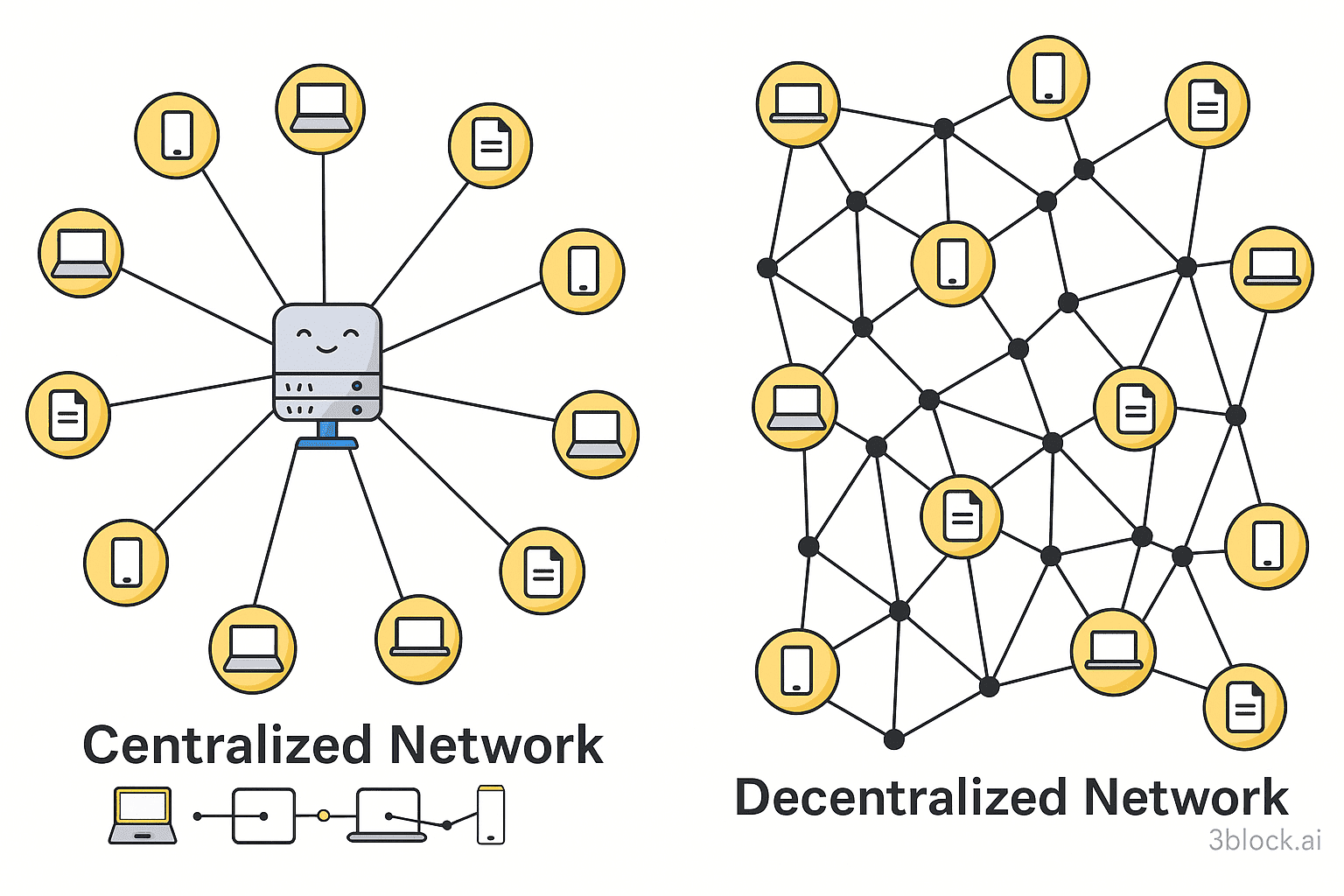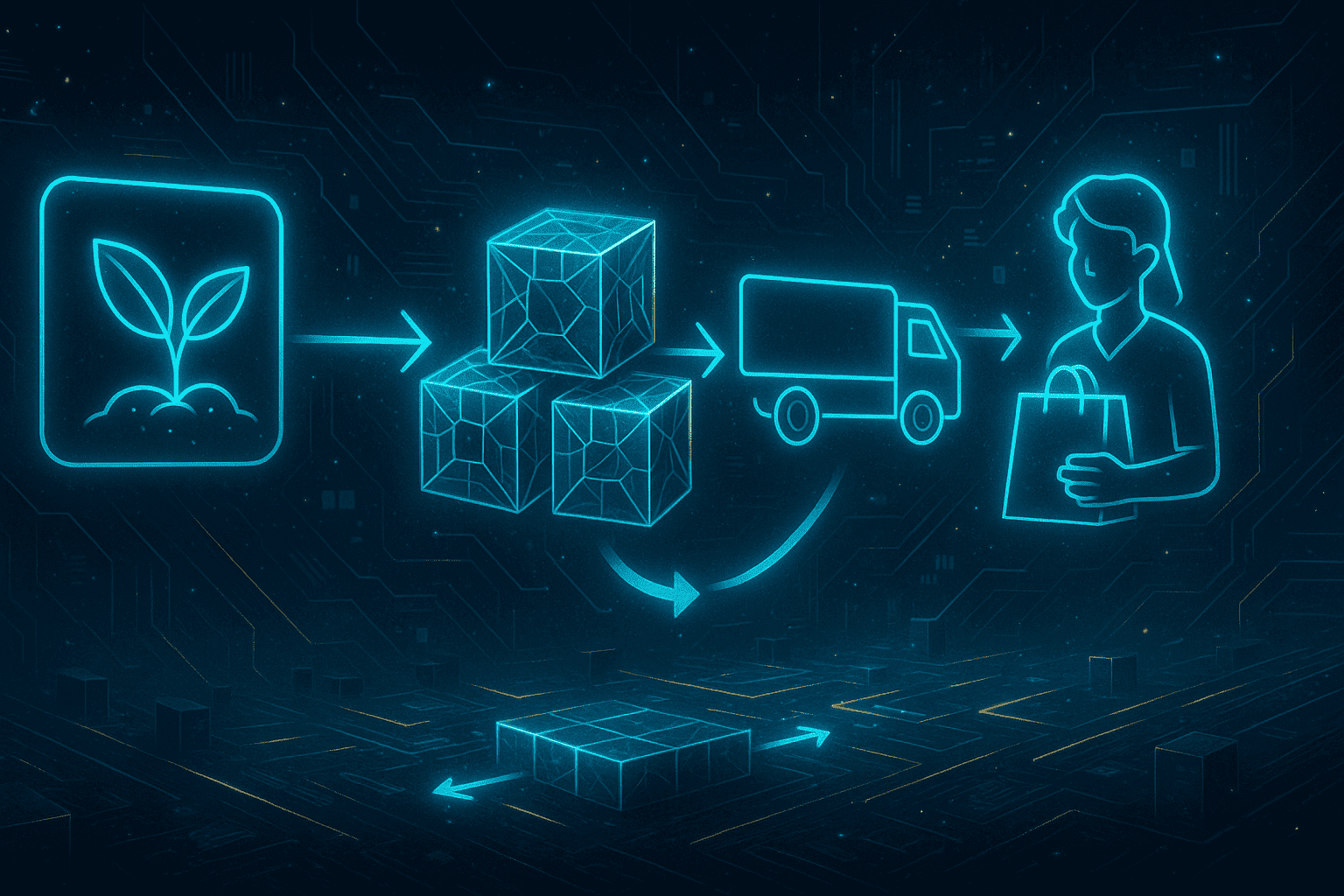What is blockchain traceability?
Have you ever wondered where that product you just bought really comes from? Well, that's exactly what the blockchain traceability system helps us discover, by constantly tracking every step of the product from where it comes from, its origin, until it reaches your hands.
The main goal is to offer consumers solid guarantees about the legitimate origin and production that complies with all current quality regulations.
The most advantageous aspect of this is that it leaves a trace on the blockchain of the entire supply chain for every movement made, thus allowing for greater control over the entire production process.

What distinguishes blockchain traceability from other systems?
If we consider the traditional systems we are familiar with, we can see that when one part of the production process fails, everything comes to a standstill because we can lose or manipulate all the information in the supply chain, meaning we do not have complete control.
In contrast, blockchain guarantees immutable, decentralized data that is accessible to all participants in the supply chain. Everything is permanently recorded within the blockchain, so nothing can be altered.
The fundamental characteristics that make this system unique are:
- Public and immutable information: No one can alter anything in the blockchain, as everything is recorded and everyone has access to it.
- Total decentralization: Being decentralized, it is very difficult to destroy all the information contained in the blockchain, as everyone has access to it and it does not depend on a single entity.
Why blockchain technology is useful for product traceability
All product data (characteristics, life cycle events, multimedia information) is stored in JSON, which generates unique hashes: a kind of digital fingerprint.
By comparing the hash of a JSON file with the one stored in the blockchain, its integrity is automatically verified, ensuring that everything matches and nothing has been modified. It's like having an infallible lie detector for products.
This gives us access to verify all the information and the product's process, providing total confidence from the source to the end consumer.
Which sector is using blockchain technology to improve traceability?
Food and pharmaceutical sector
In these sectors, blockchain gives you detailed access to every document, product, transaction, or anything else that is recorded within the technology, completely securing product information.
Key aspects include:
- Risk prevention through identification and isolation of defective products
- Compliance with HACCP (food industry) and GMP (pharmaceutical industry) regulations
- Strict control during transport, especially for products that require specific temperatures
Electronics sector
In the electronics industry, thanks to the traceability of technology, we can observe the origin of raw materials and verify compliance with regulations such as the restriction of hazardous substances (RoHS).
Is it applicable to any industry?
The answer to that question is yes. Many sectors are beginning to adopt and implement blockchain technology because it improves the end customer experience, and the sector itself has greater peace of mind thanks to the security it provides, as it is impossible to alter any information on the blockchain.
Both large institutions and large companies are beginning to implement blockchain for traceability and security, as well as for the immediacy of transactions. This facilitates cooperation on a global level.
Benefits of implementing a blockchain-based traceability system
Improved operational efficiency
The most advantageous point for companies is that they need agility in certain processes and management to cover more market, and this is where blockchain comes in. It reduces errors by being immutable and eliminates repetitive tasks, so planning is even better with access to data collected from each department, and decision-making will be even more valuable. There are also many companies that choose to implement private blockchain.
Drastic reduction in costs and errors
Constant monitoring of all processes allows for the identification of failures in real time, enabling them to be resolved immediately so that they cannot be repeated in the future and avoiding delays in repair time. This total control reduces costs associated with returns and product recalls or administrative costs outside the company.
Automatic regulatory compliance
The traceability of the blockchain means that we do not need and avoid unnecessary intermediary costs, simplifying audit and regulatory compliance processes. The immutable digital record makes it easy to verify that the required standards are being met.
How does blockchain traceability improve product safety?
Every step taken is automatically recorded within the blockchain, making data manipulation, falsification, or information loss impossible. It's as if there were cameras that never turn off and everything is recorded there without being able to be manipulated.
The fact that customers have constant knowledge and access to the origin of the product, from its source to the manufacturing processes, including the corresponding certificates, adds incredible value and provides a great deal of transparency throughout the entire production chain.
Real examples of traceability with blockchain
Food industry
Each food has QR codes in which the consumer can access the entire history of the product. If any type of contamination is detected, we can quickly identify it thanks to the blockchain.
Pharmaceutical industry
Here we avoid counterfeit drugs thanks to the blockchain by knowing every step of production and distribution, ensuring that products are genuine and comply with international regulations.
Automotive and manufacturing
Manufacturers ensure that all parts come from certified suppliers. In case of failure or defect, blockchain facilitates rapid identification of the origin, enabling efficient management of recalls.
